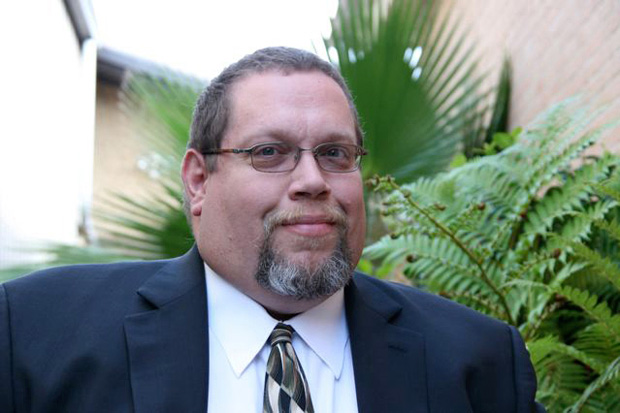Community college district officials say trans people are already covered under sexual orientation; RCD encourages supporters to contact board members
DAVID TAFFET | Staff Writer
taffet@dallasvoice.com
Resource Center Dallas is calling on LGBT equality advocates and allies to contact Dallas County Community College District officials and ask them to schedule a vote during the DCCCD board’s Dec. 6 meeting on adding protections based on gender identity to the district’s nondiscrimination policies.
RCD Communications and Advocacy Manager Rafael McDonnell said the center decided to issue the call this week after district board members said they would not vote to add gender identity to the policy. DCCD’s legal counsel, Robert J. Young, notified McDonnell of the decision in a letter on Monday, Nov. 7.
McDonnell had been in contact with DCCCD board and staff since spring, encouraging them to add gender identity and expression to the community college district’s nondiscrimination policy. Sexual orientation is already included.
In his letter, Young wrote that the board does not believe it is necessary to change the district’s nondiscrimination policy because “gender identity” is included under “sexual orientation,” and because the city of Dallas ordinances include transgender protections.
“Since our current non-discrimination policy states that it protects ‘any other category protected by law,’ it is clear that ‘gender identity’ is already covered by virtue of the city of Dallas ordinance, which prohibits discrimination in employment based on sexual orientation (defined by the city to include gender identity),” he wrote.
DCCCD’s headquarters building is on South Lamar Street, in The Cedars section of Dallas. Two campuses — El Centro College and Mountain View College — and three branch campuses are also in the city.
But five of the seven DCCCD colleges and three branch campuses are in suburban cities not covered by any city of Dallas ordinance. Richland College, the school with the largest enrollment, is in Richardson.
According to DCCCD District Director of Media Relations Ann Hatch, if someone were to file a complaint, that complaint would be filed with the district in the city of Dallas. She said that the district complies with city of Dallas ordinances.
The city ordinance, however, specifically excludes any governmental body — which would include DCCCD — from the nondiscrimination policy.
Gender identity is included in the city definition of sexual orientation. When the ordinance was passed, then-Mayor Laura Miller had the definition expanded to include gender identity rather than delaying the vote with a discussion of transgender issues.
In 2002, when the ordinance passed, it was more common to include gender identity and expression in the definition of sexual orientation. Today, these categories are usually listed separately in policies seeking to prohibit all forms of discrimination.
In an email, Hatch said that Young realized his reference to the city ordinance was incorrect.
“However, the DCCCD Board of Trustees does not believe that it is necessary to change the district’s nondiscrimination policy, which does include sexual orientation,” Hatch wrote. “If someone at any of our colleges and locations should choose to file a complaint concerning gender identity, that person could reference sexual orientation, which is among the categories listed in our nondiscrimination policy.”
McDonnell provided the DCCCD board with written policies of other governmental bodies including the cities of Dallas and Fort Worth, Dallas Area Rapid Transit, DFW International Airport and Dallas County. All include gender identity. Dallas County also includes gender expression.
Only the city of Dallas policy places gender identity into its definition of sexual orientation.
“Sexual orientation and gender identity are two different things, which was spelled out to them in our initial meetings during the summer and they are willfully choosing to ignore it,” said McDonnell.
He said that DCCCD’s inclusion of gender identity under sexual orientation was using wording that is 10 years old.
But from the letter, there is a clear message of no intention to discriminate.
In his letter to McDonnell, Young said the district is a “welcoming place for all its employees and a good place to work,” and cited anecdotal evidence to back up the claim. He said that a long-term employee transitioned while on the job and felt positive about the help and support she received.
But McDonnell insisted that isn’t enough.
“If they don’t discriminate, he needs to say it in a policy,” McDonnell said. “It’s not good enough to say it in a letter.”
When the district is taken as a whole, DCCCD is the largest college in Texas with 72,000 students and 7,200 full- and part-time faculty, staff and administrators. The school is spread across Dallas County on seven main campuses and six community branches.
Texas has 55 community colleges or community college districts. Only six of those include sexual orientation in their nondiscrimination policies.
Pasedena-based San Jacinto College, with three campuses east of Houston, is the only two-year school in Texas to offer protection that specifies gender identity and expression.
This article appeared in the Dallas Voice print edition November 11, 2011.















Great more “trans-jacking”.
https://www.sfbaytimes.com/?sec=article&article_id=6898